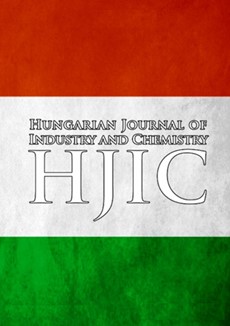Investigation of Enzyme-Catalyzed Transesterification of Used Frying Oils
DOI:
https://doi.org/10.1515/180Abstract
Investigation of the possibility to convert used frying oils to less harmful but more valuable products is driven by the protection of environment and human health as well as economical reasons. One solution could be the conversion of these oils to transportation fuels and their application in Diesel engines in “pure” form or as blend stocks of diesel fuels. The conversion to biodiesel can be realized by transesterification with various catalysts. This paper presents the results of some experiments made by applying used frying oils and a process which is studied less intensively in the literature. The main goal of our experiments was to compare the transesterification efficiency of the three commercially available immobilized lipases [Candida antarctica (Novozym 435), Rhizomucor miehei (Lipozyme RM IM) and Thermomyces lanuginosus (Lipozyme TL IM)] which were applied under the same conditions and using the same feed. Based on our experimental results we established that we achieved the highest methyl ester content (£94%) approaching well the theoretical yield when we applied Candida antarctica (Novozym 435) among the investigated lipase enzymes.Downloads
Published
2008-09-01
Issue
Section
Articles
How to Cite
Investigation of Enzyme-Catalyzed Transesterification of Used Frying Oils. (2008). Hungarian Journal of Industry and Chemistry, 36(1-2). https://doi.org/10.1515/180




